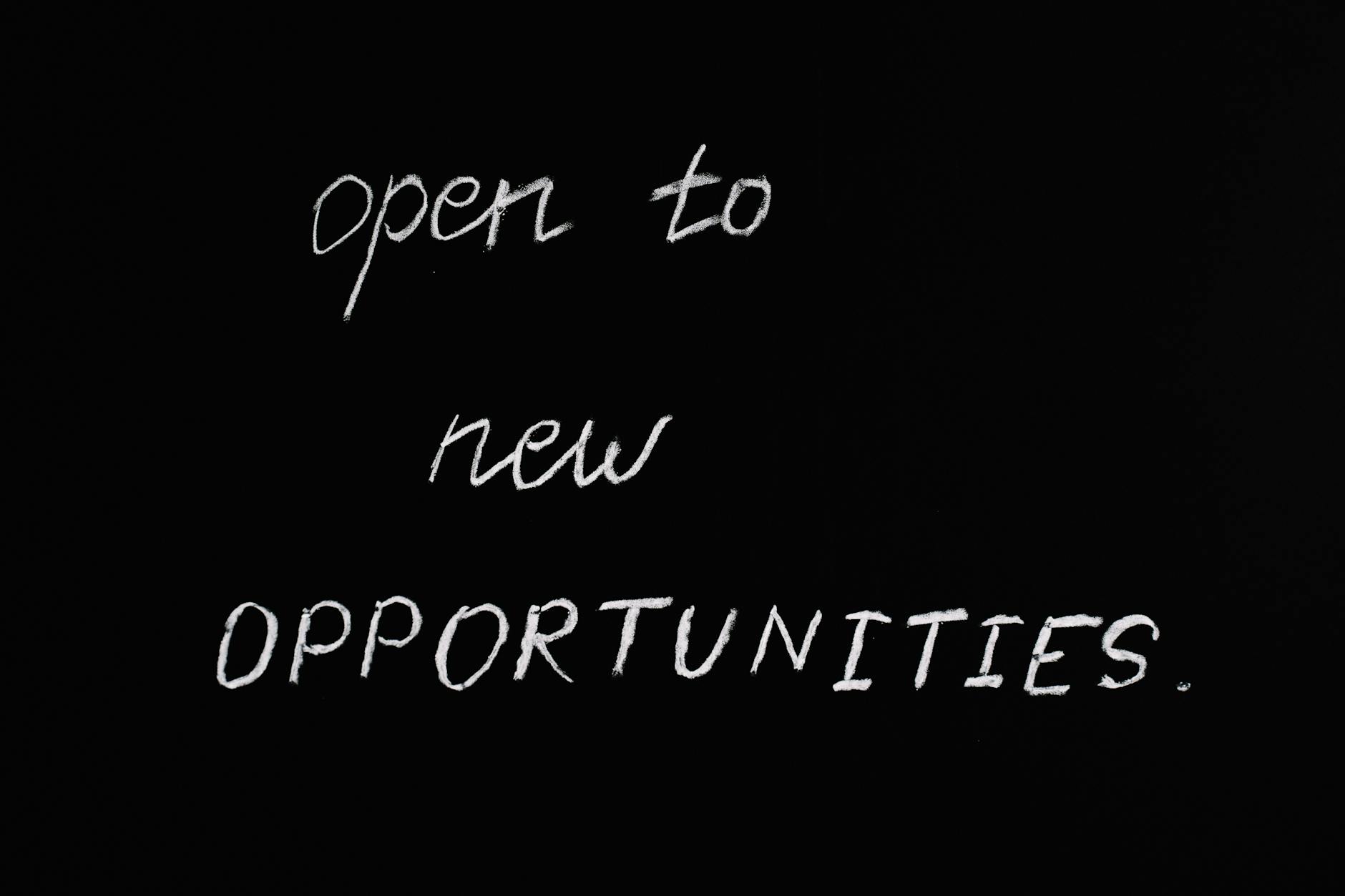Job hunting can feel like a rollercoaster, but when you throw age bias into the mix, it’s a whole new ride. Whether you’re re-entering the workforce or making a career change, the fear of being judged by your birth year is real. But here’s the truth—your experience is your superpower. Instead of letting age bias hold you back, let’s talk about strategies to make you stand out in the best way possible.
1. Rewrite Your Career Story with Confidence
Your resume is not a historical document—it’s a marketing tool. If it reads like a walk down memory lane, hiring managers might focus on how long you’ve been around rather than the value you bring. Instead of listing every job since the ‘90s, focus on the most relevant experience from the last 10-15 years. Highlight achievements, skills, and impact rather than job titles and dates.
If you have decades of experience, reframe it as a competitive advantage. Use phrases like “extensive leadership experience” or “proven track record in [your field]” rather than calling yourself a “seasoned professional.” Words matter, and positioning yourself as forward-thinking rather than “been there, done that” helps shift the narrative.
2. Show That You’re Tech-Savvy
One of the biggest age-related assumptions is that older candidates struggle with technology. The good news? You can prove them wrong with a few simple strategies.
First, refresh your LinkedIn profile. If you haven’t updated it in a while, now’s the time. A professional headshot, a compelling summary, and a regularly updated feed show you’re active in the digital space.
Second, stay current with industry tools and trends. If a job listing requires familiarity with a certain software, take a quick online course to brush up. Free platforms like Coursera and LinkedIn Learning can help you fill any knowledge gaps and add fresh certifications to your resume.
Finally, be comfortable with virtual interviews and remote collaboration tools. If you’re not familiar with Zoom, Slack, or Google Drive, practice using them so you can confidently navigate digital workspaces. The goal is to show that you’re adaptable, not outdated.
3. Network Like a Pro – Online and Offline
When you’ve been in the workforce for years, you’ve built relationships—use them! Networking is a powerful tool, and it’s not just about handing out business cards at events anymore.
Reconnect with former colleagues and industry peers on LinkedIn, attend virtual meetups, and engage in discussions related to your field. Employers often hire based on referrals, and being active in your network increases your chances of hearing about new opportunities before they’re posted.
Also, consider joining professional groups and mentorship programs. Many organizations love connecting experienced professionals with younger employees for knowledge-sharing. It’s a win-win: you stay engaged in the industry while positioning yourself as a valuable asset.
4. Show Enthusiasm and Adaptability
One of the biggest concerns employers have about older candidates is that they may be set in their ways. The best way to counteract this is to demonstrate curiosity and willingness to learn.
During interviews, show excitement about industry trends, talk about new skills you’ve picked up, and emphasize your ability to collaborate with diverse teams. Companies want employees who are open to growth and change, regardless of age.
Another great way to stand out? Emphasize your soft skills. Leadership, problem-solving, and emotional intelligence are incredibly valuable, especially in today’s fast-paced work environment. Highlight how your experience makes you not just qualified but a valuable mentor and team player.
5. Shift Your Mindset – You Are the Asset
It’s easy to fall into the trap of thinking that age is a disadvantage, but the reality is that experience is priceless. Confidence is key. If you believe you bring something unique to the table, hiring managers will see it too.
Instead of worrying about being “too old,” focus on why you’re the best candidate. Show up to interviews with energy, talk about your accomplishments with pride, and remember—you’re not just looking for a job, you’re offering a company your expertise, reliability, and problem-solving skills.
Age bias in hiring may exist, but that doesn’t mean it has to hold you back. By positioning yourself as adaptable, tech-savvy, and confident, you can stand out in the job market and land the role you deserve.
So go out there, own your expertise, and show them why experience always wins.
Using Your Experience as an Asset – Reframing Your Background
When you’re job hunting or making a career change, it’s easy to feel like your past experience might not fit the mold. Maybe you’re worried about being “overqualified” or that your background doesn’t match today’s fast-changing job market. But here’s the secret: your experience is a goldmine—you just need to frame it the right way. Instead of seeing your background as a potential roadblock, let’s flip the script and turn it into your biggest advantage.
1. Experience = Expertise (So Own It!)
One of the biggest mistakes people make when applying for jobs is underselling themselves. If you’ve been in the workforce for years, you’ve built expertise, problem-solving skills, and industry knowledge that younger candidates simply don’t have yet. Instead of downplaying your years of experience, highlight how it makes you the ideal candidate.
For example, if you’ve managed teams, don’t just say you have leadership skills—talk about how you’ve mentored employees, navigated challenges, and created strategies that led to real results. If you’ve worked across different industries, show how that variety has given you a unique, adaptable skill set that others might not have.
Your past work isn’t just a timeline of jobs—it’s proof that you know how to get things done. And that’s something every employer values.
2. Transferable Skills Are Your Superpower
Worried your past roles don’t align exactly with the jobs you’re applying for now? That’s where transferable skills come in. These are the abilities that carry over from job to job, industry to industry—things like communication, problem-solving, project management, and leadership.
For example, if you’ve worked in customer service, you’ve developed conflict resolution, interpersonal skills, and the ability to stay cool under pressure. If you’ve worked in a technical role, you likely have attention to detail, analytical thinking, and the ability to learn new tools quickly. These are all highly valuable skills, no matter where you’re headed next.
The trick is to reframe your past experience so that hiring managers see the connection. Instead of saying, “I worked in sales for 15 years,” try:
“I developed strong negotiation skills, built long-term client relationships, and consistently exceeded sales targets—proving my ability to drive business growth.”
See the difference? It’s all about showing how your past work applies to your future goals.
3. The Industry May Have Changed, But So Have You
Many people worry that their experience is outdated, especially if they’ve been in the same industry for a long time. But adaptability is a skill, too—and if you’ve stayed relevant, learned new tools, and kept up with trends, that’s something to highlight.
If you’ve taken courses, earned certifications, or explored new technologies, make sure that’s front and center on your resume and LinkedIn. Employers want to see that you’re still learning and growing, no matter how long you’ve been working.
Even if you haven’t taken formal training, think about the ways you’ve adapted to changes in your field. Maybe you’ve implemented new software at work, led process improvements, or even taught yourself new skills on the job. That all counts!
The key is to show that your experience is not just years on a resume—it’s proof that you’re resourceful, adaptable, and still in the game.
4. Confidence Sells – So Sell Yourself!
At the end of the day, how you talk about your experience makes all the difference. If you frame your background as something you’re insecure about, hiring managers might pick up on that. But if you own your expertise, highlight your skills, and show enthusiasm for what’s next, you become an attractive candidate.
Instead of thinking, “I’ve been in the industry too long,” reframe it to: “I bring deep industry knowledge and a fresh perspective.”
Instead of, “I don’t have experience in this exact role,” try: “My diverse background gives me a unique approach to problem-solving and innovation.”
Confidence isn’t about having all the answers—it’s about knowing your worth and communicating it effectively.
Fast-Track Degrees & Certifications – Short-Term Training for Career Shifts
Making a career change doesn’t have to mean spending years in school. Fast-track degrees and certifications can help you gain the skills you need in a fraction of the time. Whether you’re shifting into tech, healthcare, or another high-demand industry, short-term training programs are designed to get you job-ready quickly. Many of these programs are flexible, affordable, and built with career changers in mind.
If you’re eager to move forward without a long-term commitment to education, these programs could be your shortcut to a fresh start.
Why Fast-Track Programs Work for Career Changers
Traditional degrees aren’t always the best or only way to land a great job, especially as industries evolve. Employers today care just as much about hands-on experience and practical skills as they do about formal education. That’s where fast-track programs come in—they strip away unnecessary coursework and focus on the skills that actually get you hired.
Take coding bootcamps, for example. Instead of spending four years on a computer science degree, you can learn enough to get a job in software development in just a few months. The same goes for digital marketing, UX design, project management, and even healthcare roles like medical coding or phlebotomy. These programs work because they cut out the fluff and teach only what’s needed to succeed in a new field.
Short-term training programs also tend to be more accessible. Many are available online, allowing you to learn at your own pace while still working or managing other responsibilities. Others offer hands-on, in-person training designed to give you real-world experience. Either way, they’re built to help career changers like you transition as efficiently as possible.
Best Fast-Track Careers and Certifications
Not all careers require years of schooling. Some of the fastest-growing industries offer short, targeted training programs that can help you make a career switch quickly.
Tech and digital careers have some of the most accessible fast-track programs. Coding bootcamps can teach you web development, software engineering, or data science in as little as three to six months. UX design certifications, such as Google’s UX Design course or BrainStation’s design program, can prepare you for user experience roles. Digital marketing certificates from platforms like HubSpot or Google Digital Garage can give you the skills needed for roles in SEO, social media, and paid advertising. IT support and cybersecurity training programs, such as the CompTIA A+ or Google IT Support certification, can open doors to entry-level tech jobs.
If business and project management are more your style, there are plenty of certifications to consider. Project management certifications, like the PMP or CAPM, are great for those who enjoy organization and leadership. Business analytics certifications can teach you how to use data to drive business decisions, making you valuable in industries like finance, marketing, and operations.
Healthcare and wellness careers also have quick training options. Medical billing and coding programs can prepare you for a job in healthcare administration in just a few months. Phlebotomy certification programs train you to draw blood and work in labs or hospitals. If you love fitness, a personal training certification can help you turn that passion into a career.
Skilled trades are another great option for career changers looking for stability and good pay. HVAC, electrical, and plumbing certifications take far less time than traditional degrees but lead to high-demand jobs. If you enjoy driving, getting a commercial truck driving (CDL) license can be a quick way to enter a new field with great earning potential.
Whatever your interests, there’s a fast-track program that can help you make a smooth transition into a new career.
How to Choose the Right Fast-Track Program
With so many options available, finding the right fast-track program can feel overwhelming. Start by matching your skills and interests to a new career path. Think about what you enjoy doing and look for programs that align with those strengths.
Research job demand before committing to any training. Look at job postings in your desired field to see if certifications are commonly listed as requirements. Some industries, like tech and healthcare, are actively looking for skilled workers, making them a safer bet for career changers.
Cost and time commitment are also important factors. Some programs last just a few weeks, while others take several months. Consider how much time and money you’re willing to invest. Many online programs offer flexible payment options, and some even provide job placement assistance.
Employer recognition matters as well. Not all certifications carry the same weight in the job market, so choose one that’s respected in your industry. Read reviews and success stories from past students to ensure the program delivers real results.
The best fast-track program will help you gain confidence, develop new skills, and make your career transition as smooth as possible.
Making the Leap – Getting Started Today
The best thing about short-term training is that you don’t have to wait to start. Many online programs allow you to begin learning immediately, while others offer structured, full-time courses that get you job-ready even faster.
If you’re serious about making a career shift, taking action is the most important step. Start researching programs, sign up for a course, and begin developing the skills that will move you forward. Before you know it, you’ll be updating your resume, connecting with professionals in your new industry, and landing interviews for roles you once thought were out of reach.
A new career doesn’t have to be years away—it might be just a few months of training from becoming your reality.




